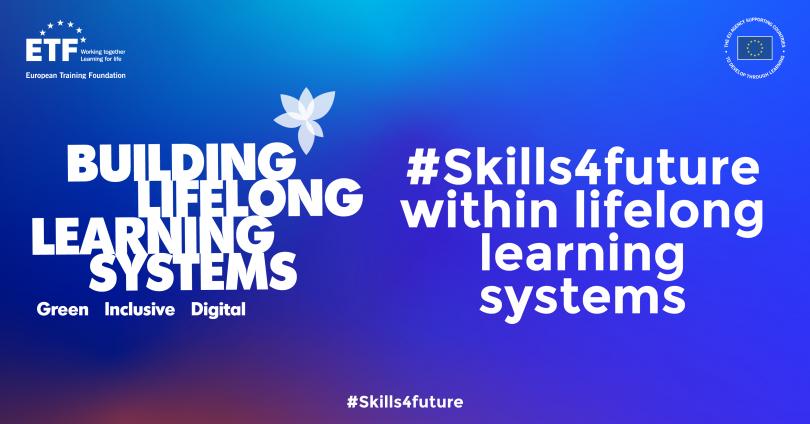
#Skills4future within lifelong learning systems
ETF-UNESCO International Conference, 21-25 June 2021
The ETF’s Future of Work campaign this month presented just some of the many ways in which global forces are changing local realities and the skills needed in the EU neighbouring regions.
Old jobs are changing, relocating, or disappearing, while new ones are emerging. Smart specialisation, the platform economy, and transforming sectors, due to digitalisation and innovation, are creating new demands on skills. As work becomes increasingly automated, jobs become polarised and non-routine cognitive and social skills become vital assets. The fast pace of change is causing a growing mismatch between the skills workers have and those employers need. Education and training systems must adapt accordingly and incorporate new learning methods and technologies to overcome the socio-economic challenges and enable learners and employers to grasp opportunities. The launch of the ETF's publication "Changing Skills for a Changing World" is a concerted effort to enrich the intelligence on changing skills demands in ETF partner countries, in an area dominated by studies in advanced economies. In addition, the ETF has undertaken studies in the transformation in skills due to technological innovations in the agri-tech, agri-food and automotive sectors in Israel, Morocco, and Turkey, respectively.
The ETF is working with governments and stakeholders in countries to ensure people are equipped with new skill-sets flexible enough to cope with the demands of a constantly changing economic environment. As we have seen from the discussions in the Facebook Live interviews and newly launched podcast series, experts and practitioners confirm different national and regional contexts require tailored solutions and alternative pathways.
ETF-UNESCO international conference
The discussions and findings from the campaign will feed into an international conference which the ETF will jointly hold with UNESCO on 21-25 June 2021 entitled: “Building lifelong learning systems: skills for green and inclusive societies in the digital era”. It will reflect on the progress of system change to facilitate lifelong learning and how responsive education and training systems are to deal with green and digital futures, as well as guaranteeing the right to education for all. Priorities for future cooperation in human capital development will be confirmed.
The conference will take place virtually bringing together actors from all levels in the development of education and training systems: policy-makers, practitioners, employers, donors, experts, researchers and civil society organisations.
Did you like this article? If you would like to be notified when new content like this is published, subscribe to receive our email alerts.